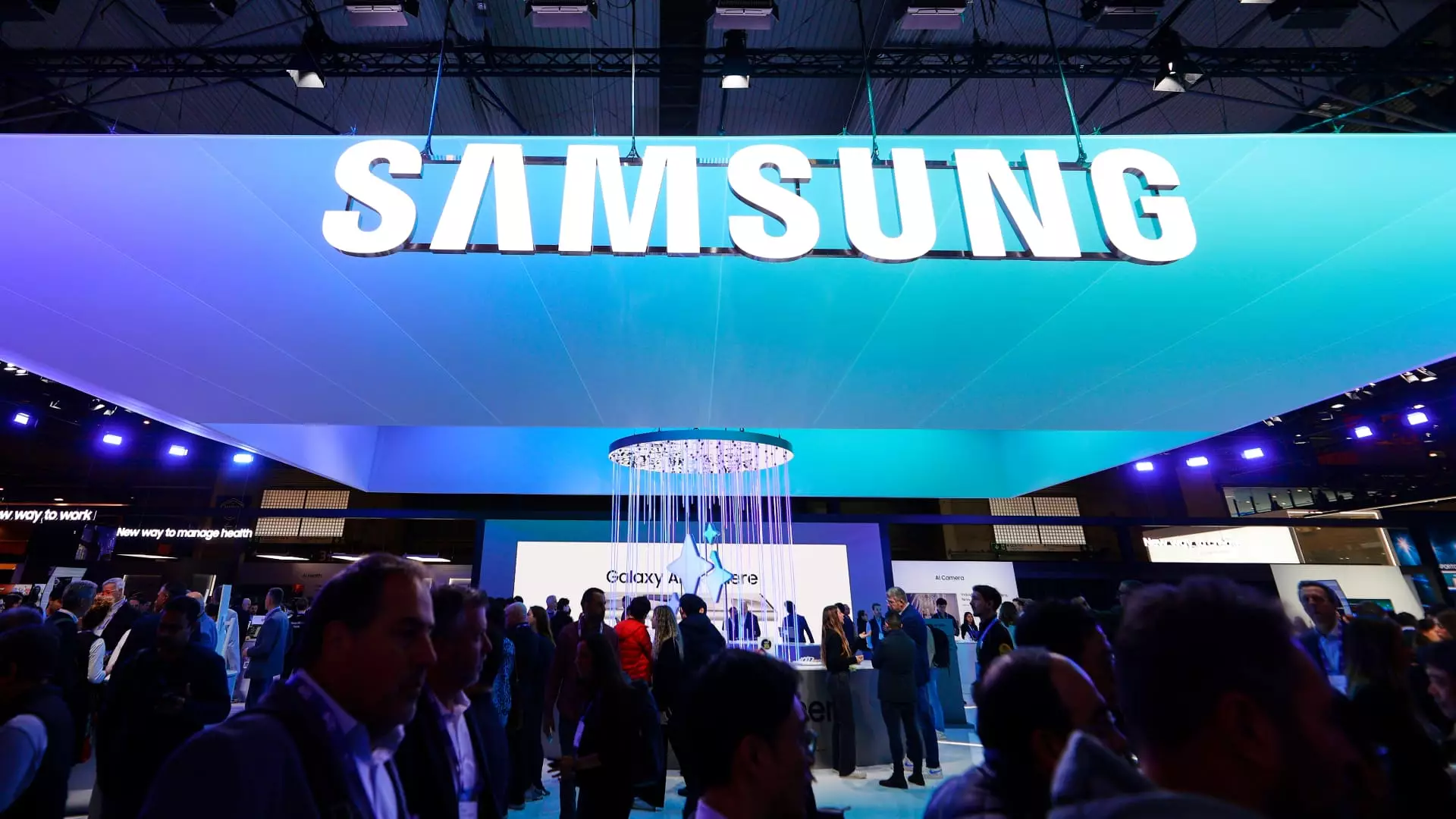Samsung Electronics has recently disclosed a projected decline in profits for the third quarter, falling short of market expectations and presenting a robust contrast to its past performance. The South Korean technology titan, renowned as the leading manufacturer of memory chips globally, anticipates an operating profit of approximately 9.10 trillion won (around $6.7 billion) for the quarter ending September. This marks a substantial year-on-year improvement from last year’s meager 2.43 trillion won; however, it is significantly below the forecasted 11.456 trillion won predicted by analysts at LSEG.
Despite the stark increase in profit compared to last year, the company’s inability to meet projections has raised concerns among investors and market analysts alike. The anticipated revenue is projected to reach 81.96 trillion won ($61 billion), reflecting a microcosm of the struggles faced by the semiconductor industry amidst shifting market dynamics.
In light of these profit forecasts, Jun Young-hyun, the newly appointed head of the Device Solutions Division, publicly acknowledged the company’s shortcomings and issued an unusual apology. The rationale behind this downturn includes various one-time costs and destabilizing factors that have led to reduced performance within the memory business. Notably, issues such as inventory adjustments by mobile clientele and intensified competition from Chinese memory suppliers have adversely affected Samsung’s operations.
Furthermore, delays in shipments of its high-bandwidth memory (HBM3E) chips to key customers underscore the operational challenges faced by the enterprise, reinforcing the notion that Samsung is experiencing significant headwinds in a critical segment of its business.
The broader implications of Samsung’s missed projections are becoming clearer as analysts weigh in on the company’s competitive stance in the global memory chip market. Daniel Yoo, head of global asset allocation at Yuanta Securities Korea, expressed disappointment over the company’s current performance. He emphasized the importance of competitiveness in the memory chip sector, noting that demand for traditional chips used in PCs and smartphones has not rebounded as hoped. This stagnation poses a stark contrast to the aggressive market share strategies Samsung has historically employed.
Macquarie Equity Research analysts further warned about the potential pitfalls that could arise from a lack of flexibility in memory supply control. They argue that a decline in conventional DRAM chips’ performance could inflict more significant damage on Samsung compared to its smaller competitors.
In a move to navigate these troubled waters, reports indicate that Samsung has instructed its global subsidiaries to reduce their workforce by 30% in certain divisions. This aggressive cost-cutting measure reflects the urgency of the situation as Samsung endeavors to streamline operations amid challenging market conditions.
As Samsung Electronics prepares to unveil a detailed report of its third-quarter financial performance, stakeholders remain cautious, particularly following a 22% decline in its share price year-to-date. The immediate future of the company hinges on its adaptability and strategic responses to an ever-evolving market landscape as it grapples with the pressures of competition and changing consumer demands.

